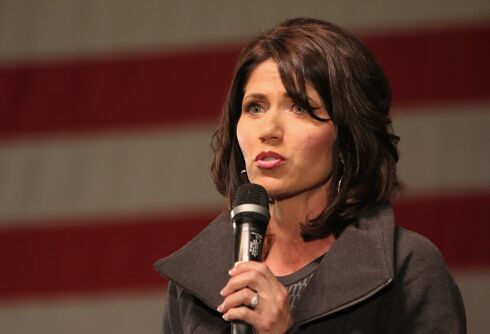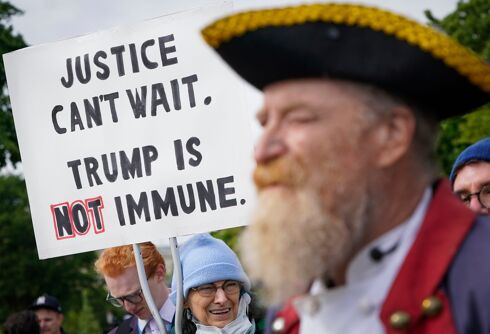But the book leaves you with the following queries to do more than merely pray about: Should the black church continue to have such a central role in the lives of African-Americans given its very toxic androcentric ecclesiastical paradigm that systematically still bars many of us – straight or LGBTQ – ascendency to the pulpit? Can African-Americans find liberation in the ever present accommodationist phase of the black church that sells out its social gospel message of justice for conservative faith-based initiative dollars?
Whereas Shockley’s fictional tale gives – especially African-American LGBTQs – unproved reasons and unfed hope to stay in the black church, other than its familiarity, Sikivu Hutchinson’s historical gothic novel White Nights, Black Paradise gives us all reason to leave religion entirely.
For centuries, the paradigm of leadership in the African-American community has been the black church with its homophobic and sexist yet charismatic gay preachers, (i.e., Bishop Eddie Long). Hutchinson’s novel disturbingly shows the complexity of a repackaged and unexamined black religious idealism espoused from the mouth of a white megalomaniacal messiah alongside the harsh reality of a supposed utopia. Based on the true and horrifying story of the charismatic Reverend Jim Jones, the Peoples Temple, and Jonestown massacre, Hutchinson’s novel is both a reckoning and remembering of the lives lost in the largest religious murder-suicide in American history.
The majority of its black congregants were women, while its core leadership was predominantly white – as too is the historical records and visual optics of the event. And as in the black church, black women were “the backbone” of Peoples Temple. Sadly, the majority of Jonestown’s victims were African-American women, too. And the haunting question is: why did so many black women die?
“Unpacking why so many black women died in Jonestown requires taking a critical look back at the racial underbelly of the Jonestown age. It demands confronting hard truths about the dangerously gendered seductions of organized religion, particularly given the global appeal that 24/7 prayer movements and charismatic Pentecostalism have for women of color,” Hutchinson said.
“The widening wealth gap between blacks, whites and Latinos, coupled with the downward mobility of the black middle class, only amplifies the role of religion in black life. Because charismatic faith movements thrive in the presence of socioeconomic and political turbulence black religiosity is flourishing.”
The characters in the novel are a cross-section of the American populace – “queer, lesbian, bisexual, trans, straight, African-American, Latino, multiracial, white, age/class diverse and all over the map in terms of spiritual belief,” Hutchinson explains.
Whereas one of Shockley’s main protagonist, Reverend Myrtle Black, is a lesbian and Christian, raising eyebrows for many in the African American community, one of Hutchinson’s main characters, Taryn Strayer, is an atheist, and her sister, Hy Strayer, is an agnostic – both causing a disruption and disease in how African-Americans have seen, read, accepted, and envisioned themselves in the African-American literary canon.
The sisters’ religious beliefs are born from too many unanswered prayers.
The book opens with the sisters’ migration to their surprisingly segregated San Francisco from the Midwest. Their emigration to Jonestown in Guyana represents another leg of the African Diaspora, but this time black bodies are stolen and killed not by the hands of white slave hunters, but rather by a religious rhetoric that pimps and profits on the racial, economic, and gendered disenfranchised.
We know how the Jonestown massacre happened. White Nights, Black Paradise seeks to answer the “Why?” and ask “Could it happen again”?
As I read Hutchinson’s book I thought of Those Bones Are Not My Child, a fictional rendering of the 1979-1981 Atlanta child murders. Toni Morrison depicts Toni Cade Bambara’s magnum opus as a “novel that leaves us with an enduring and revelatory chronicle of an American nightmare.” Similarly, Hutchson’s novel does, too. Sadly, however, Bambara’s book, in my opinion, went away from the public eye as swiftly as it came.
But Hutchinson’s won’t because for those who dare to remember the Jonestown massacre these questions still linger:
“But why is it that the African-American community then and now, refuse to stand still and acknowledge the gravity of what took place that fateful day? Why aren’t African American ministers of the cloth, churches and communities not setting this day aside to remember the tragedy that was the People’s Temple?”
Defiantly, many are still waiting for a response.













A religious utopia turned into a nightmare for African-American women